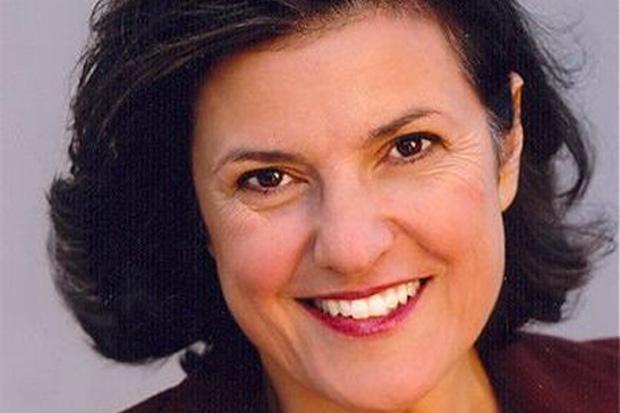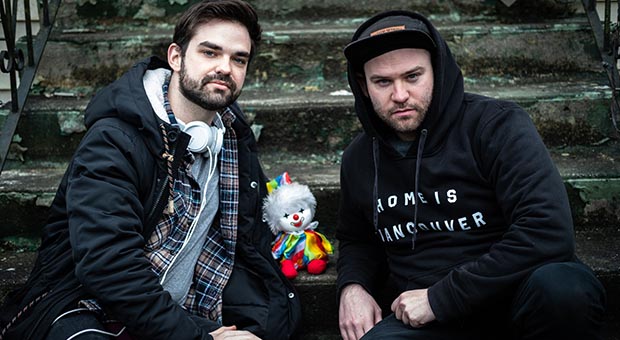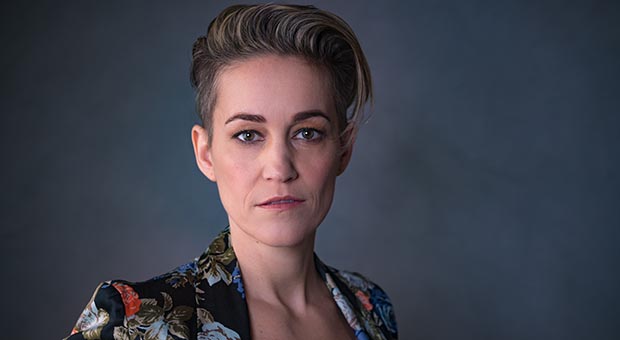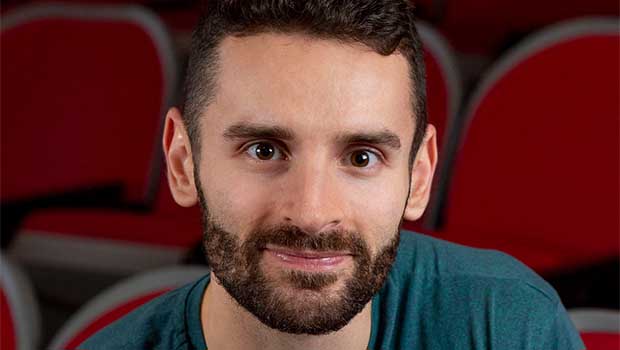
31 Aug The Biz Interview: Suzanne Ristic – Writer of “Poor”
Suzanne Ristic is the writer of Poor, the newest effort from Angry Actors Co-Op that premieres at the 2014 Vancouver International Fringe Festival.
Following the exploits of a one-percenter (Lisa Bunting) who sets up shop in a disguise in Vancouver’s Downtown Eastside, Poor is an expanded one act comedy that was originally a 15 minute monologue.
We spoke to Suzanne about her creative journey to bring Poor to life at the 2014 Vancouver International Fringe Festival.
Poor was originally a fifteen minute monologue, but it has now been expanded. What was the creative process like for you as far as creating the original script and later expanding it?
There would be no play and no process without the influence of many of my colleagues.
For instance, well over sixteen years ago, our company Angry Actors, had just come off a successful run at the Fringe with a play that we had collectively created. We began meeting with the idea of creating another piece, to be performed as a Bring Your Own Venue, perhaps at a laundromat that Kathryn Shaw knew of on Fourth Ave. Pam Johnson came to the meeting with a brilliant writing exercise: we were all to bring in an object, a piece of music and a quotation, throw it into a box and then choose something, not our own.
I chose a beanie propeller hat, Charles Ives’ Piano Sonata and Jesus’ quote: “It is easier for a camel to pass through the eye of a needle.” (All of which are still in the play.)
I was thinking about how to use these ideas when I caught myself wishing I were poor. Yes, I know utterly insane, and that wasn’t lost on me. There was a woman in my neighbourhood, a welfare mom, who I greatly envied for her strength, her tenacity, and wow! what a fighter. So I caught myself in this moment of awe and condescension and knew that this would be the central character of the monologue, not the welfare mom but the middle class, somewhat privileged character. I wrote about five minutes of material and presented it to the group. The read was successful but life got in the way and we never did get it together to produce anything, let alone a self created piece, for 16 or 17 years.
Flash forward to September of 2013. Solo Collective Theatre sends out a call for monologues for their Solo Flights Emerging Playwrights Competition. I often thought about that little monologue lying in the drawer but needed an incentive to get back to it, and thanks to Solo Collective got the kick start I needed. Our heroine became a One percenter who ventures into the Downtown East Side. I submitted this newest version and was gratefully selected for a public reading, dramaturged and directed by Carmen Aguirre and read by Jennifer Clement.
The audience response was enthusiastic and fueled me to develop this piece into a full evening. That’s where our writing club came in. We’d been meeting on and off for several years, and because I was fired up, I called and got us going again. (We’ve recently named ourselves The Word Stir Group. Our members are Eileen Barrett, Jay Brazeau, Linda Carson, Jacques Lalonde and myself.)
This play would not have moved forward without these guys and our weekly meeting. Having this club provided organization and discipline. Every week, all of us would bring in the pieces we were working on and people would give their hit on it, offer suggestions, etc. I’d take what was useful and expand on it. The original piece was an entire entity in itself with a beginning a middle and an end and to move it forward sometimes felt like building an addition onto a house. You can see the seams a bit. There are features that you need to lose in order to create a more seamless appearance but gosh-darn you’re very attached to that banister or that line or that image. What I’m learning is that I can let go of something I like because an opportunity to bring it back somewhere else usually manifests. I find that fascinating.
What was the biggest challenge for you along the way?
The first challenge I faced was: How am I going to generate enough material for a full length show? The biggest challenge was/is: I have too much material for the one hour Fringe slot I booked into. I kick myself continually for not taking the 90 minute slot but I cheaped out because I wanted more money to end up in the pockets of the artists who have generously lent their talents and time to this project. (Just quickly wish to mention Lisa Bunting our star who is playing seventeen characters! Ashley Noyes our stage manager, Pam Johnson set and costume – she’s a founding Angry Actor member – and John McGie sound and lights. Oh my gosh, Jay Brazeau my hub and the director, also a founding Angry Actor).
Having said all that above about learning to let stuff go, it’s been difficult. Lots of fun stuff did not make it into the show and we continue to pare it down.
What has been the most rewarding part of this project?
The act of writing itself. I’m socially awkward and spend a lot of time in my head rewriting real-life scenes so it’s a comfortable place for me to hang out, inside my head. Also, there is something tangible at the end, unlike acting that vanishes after every performance. John McGie, our sound designer is also a writer and he said, and I paraphrase, “you start with a blank page and at the end of it something exists that didn’t exist before. Something very satisfying in that.” The greatest reward is yet to come. We face our first audience at the Fringe on Sept. 4 and I’m scared and excited to learn what they will teach me. Poor is politically incorrect but with a purpose. They’ll sketch out the parameters for me if I did go too far.
Who are some of your major influences as far as theatre actors, writers, and directors are concerned?
My teachers in the early days: Kathryn Shaw and Carol Rosenfeldt are huge influences in my acting work. They both subscribe to the same methodology: keep it simple and just talk to your scene partner. Decades later, I still have to remind myself to do that. My husband, Jay Brazeau, is a great influence in my life. He’s a writer, a director and an actor and I continue to learn from him. Not only is he directing Poor, he is my dramaturge and always demands more. I’ll think the script is done and he’ll say “No, we need something else here.” After throwing things at each other it’s back to the computer I go.
Kim Selody and Linda Carson are huge influences in my life. Kim loves theatre artists. He is a great supporter of new plays and extends himself to help artists make stuff happen. He is producing Susinn McFarlen’s new play Since You Left Us at Presentation House Theatre for their season opener and has provided space for me to test out new material and will provide it again this fall on Culture day. He and his wife Linda, a very busy playwright in her own right, have worked all over the world and share what they’ve learned about theatre abroad. In fact we often engage in wrestling with your next question, over a bottle of wine.
In your opinion, what is the current state of theatre in Vancouver and how can it be improved?
I don’t have an answer for this…get ‘em while they’re young! If we had a government that valued theatre/art, kids would be going to plays regularly, and develop an appreciation for it and hopefully carry that through for their entire life.
What books have been influential in your journey?
Angela’s Ashes! It’s referenced in Poor, as a matter of fact.
A biography on Frank Lloyd Wright. He designed rooms to have theatrical impact. The entrances were very low, one would have to stoop to get through but when one entered the great room, lungs expand, the visitor grows to his full height, a sense of exhilaration ensues. I thought it a great image for actors.
Keith Richards’ biography! During unproductive writing sessions, they would tear headlines out of newspapers, throw them into a pile and rearrange them till something clicked.
A magazine article from – if I remember correctly – American Theatre, is the most impactful thing I’ve read. I think the title was “Ten Things Wrong with Theatre”. I don’t recall everything on the list but I do remember “Too Much Shakespeare” was one of the items. Not enough development of new voices, new playwrights. The article went on to say how important it is to get these new voices out there in front of an audience that it is a necessary step in the playwright’s development, even if the play isn’t ready. I know some people disagree with that, that putting unfinished works up on stage only drives people away from the theatre.
This is where I say Bravo to The Fringe because they provide that stepping stone for new works. A place to learn. And if it’s a failure, well, the theatre consumer is only out of pocket by 14 bucks… better than 35 or 85 or more !
What other projects are you working on now or in the future after Poor?
As soon as the Fringe ends our writing club resumes. YAY! I have a very bad mystery I wrote several years ago that I’d like to get back to and a couple of small pieces that may or may not be developed. We are doing a presentation of works in progress at Presentation House on September 28th – Culture Day – and I look forward to that.
_______________________________
Poor runs at the Firehall Arts Centre from September 4th through September 7th, September 10th, and September 12th to September 14th.
For more details, please visit VancouverFringe.com.






